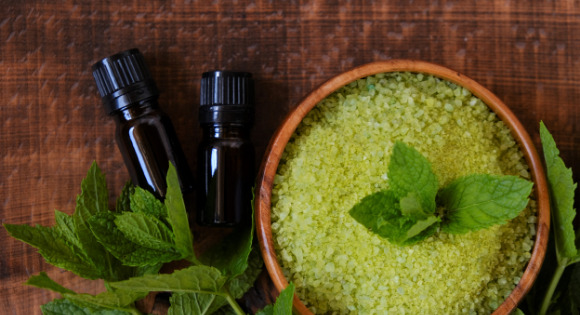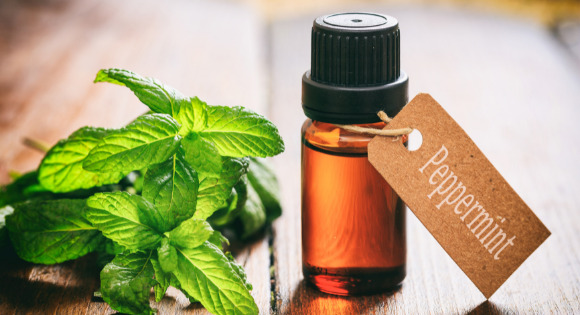Today, we will be sharing information about peppermint oil – its uses, benefits, and a few safety precautions that are worth knowing. Peppermint essential oil belongs to the mint family and is aromatic. It is essentially a blend of water mint and spearmint and is native to Europe and North America. The oil can be used for various purposes. Read on to find out more.
Peppermint Essential Oil – Uses, Benefits, and Safety Precautions
Peppermint Essential Oil Uses
- As a flavourant in cosmetic products and soaps.
- As a natural remedy for digestive problems, IBS (irritable bowel syndrome), headaches, nausea, and the common cold.
- As a topical remedy for muscle pain, itching, and headaches.
- As a flavourant for mouthwash and certain foods.
How Can Peppermint Oil Be Used?
- Topical ointment
- Essential oil
- Intranasally
- Orally as a capsule or tablet
Safety warning: It is essential to be cautious when you ingest peppermint essential oil. It can be highly toxic no matter how you use it. Always check with your physician before you start using it.

Benefits of Peppermint Essential Oil
The use of peppermint oil dates as far back as ancient Greece, Rome, and Egypt. While research is ongoing, many of the possible benefits are based on people’s personal testimonies.
1. Irritable Bowel Syndrome (IBS)
IBS is a long-term, gastrointestinal medical condition that involves:
- Diarrhoea
- Constipation
- Abdominal pain
Research suggests that peppermint oil can be used as a remedy for treating IBS and pain symptoms. It can have an anti-inflammatory impact and help with relaxing the muscles in your GI tract, subsequently lowering pain.

2. Nausea Relief
Results are not definitive and research is still ongoing, however, in some cases peppermint oil can help with nausea relief.
3. Hair and Skin
Peppermint oil is often found in soaps or cosmetic products, however, there is not enough research available currently to substantiate the benefits of peppermint oil for hair and skin. Some people use it for soothing itchy skin.
4. Pain Remedy
Many individuals use menthol or wintergreen oil as a pain remedy for migraines, tension headaches, and other issues. Various forms of menthol and peppermint can prove to be helpful to offer pain relief for migraines and headaches. Some people find the tablet to be useful in easing discomfort when they have difficulty swallowing.
5. Antimicrobial Effects
Different studies have been done to evaluate the effectiveness of peppermint oil for combatting various types of fungi and bacteria. The results have been inconclusive.

Safety Precautions For Using Peppermint Oil
According to the FDA you should always stick to manufacturer guidelines when using essential oils. They are highly potent and are not meant for oral ingestion. By taking peppermint oil orally, you might experience side effects, including:
- Nausea
- Heartburn
- Vomiting
If you are planning on using peppermint oil in food, use a peppermint extract. Because peppermint essential oil is highly toxic, always practice safety when you are using it around pregnant women, children, or pets.
The oil is very toxic when taken in large doses due to the pulegone compound. The oil must be diluted with a carrier oil like olive oil, coconut oil, or almond oil before using it topically. Add a few drops of essential oil to an ounce of carrier oil before use.
Conclusion
Peppermint oil is generally safe to use if you do it the right way. Large doses are toxic and the oil must always be diluted with a carrier oil for topical use. If you have any questions or concerns, check with your doctor before using any essential oil or natural remedy, especially if you are on medications.
Sending you much love, light, and healing vibes.


